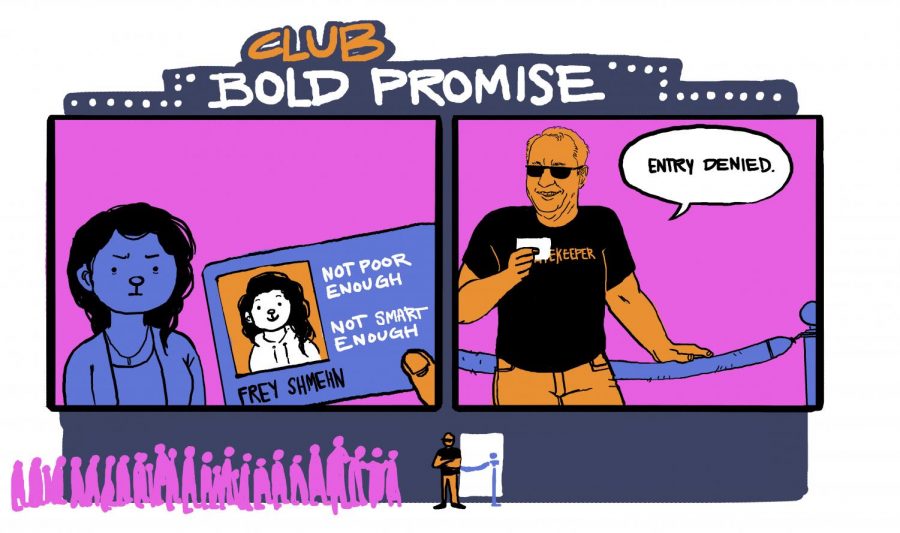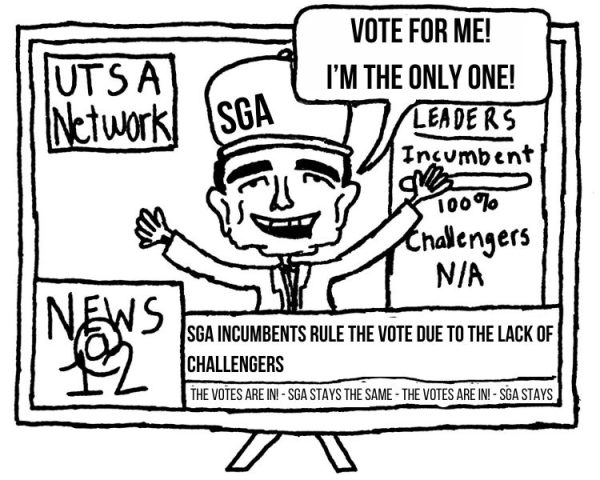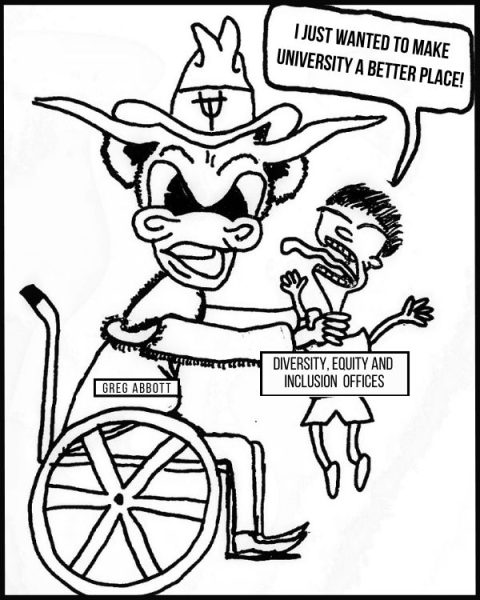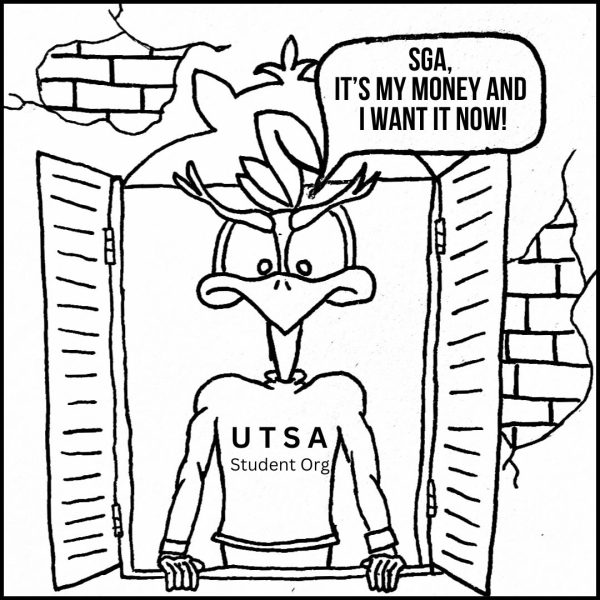Bold Promise or bold scholarship?
Bold Promise graphic
January 22, 2020
Beginning in Fall 2020, UTSA’s Bold Promise initiative gurantees full financial aid for tuition and mandatory fees for eight semesters to students who satisfy specific requirements: being an incoming freshman in Fall 2020, having a median household income of $50,500 or less and being in the top 25% of their high school graduating class.
The Bold Promise is a step in the right direction, but two aspects are problematic: Meritocratic stipulations will disqualify the candidates who need this financial help the most, and UTSA strays from other Texas universities that offer free tuition without significant academic requirements.
These free-tuition initiatives are not new to Texans; universities including Rice University, UT Austin, UT El Paso and Texas State have programs making college free for prospective students. However, those programs do not come with the significant academic caveat the Bold Promise does.
Both Rice University and UT Austin require a 2.0 high school GPA to qualify for free tuition, the equivalent of a C average. For UTSA’s Bold Promise program, applicants must be in the top 25% of their high school class to qualify. This condition alone veers the Bold Promise program from a tuition-free opportunity for students in need toward a merit-based reward, becoming the Bold Promise Scholarship.
Rice University waives tuition for “low-income” students who have a household income of less than $130,000. While this income would not categorize a student as a one-percenter, a household income of suwch magnitude is miles away from the $50,980 median household income for San Antonio.
The financial threshold for UT Austin’s program is $65,000 or less, and Texas State’s program has a $35,000 threshold. Rice University’s commitment to accommodate a broader range of students is excellent, and UTSA’s $50,500 threshold to qualify ensures college becomes a realistic opportunity for high school students across Texas.
President Eighmy advertises that Bold Promise reaffirms UTSA’s “founding commitment” that San Antonians deserve access to high-quality education and opportunities; however, Bold Promise has turned into a recruiting opportunity to boost enrollment numbers.
UTSA’s Bold Promise is not entirely need-based, it’s merit-based and need-considerate. Further, it is more selective than nearly all other major Texas universities. Therefore, UTSA should remove the top 25% requirement and use the widely accepted academic requirement of a 2.0 high school GPA.











